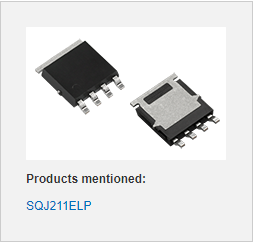Manufacturers
- Abracon
- Adam Tech
- Aerospace, Defense & Marine
- Agastat
- AIC
- AKM Semiconductor
- Alcoswitch
- Allegro
- Alps Electric
- Altera
- AMI Semiconductor
- AMP
- ams
- Analog Devices (ADI)
- Aptina Imaging
- Atmel
- Avago / Broadcom
- AVX
- Axicom
- Bccomponents
- Beyschlag
- BI Technologies
- Bourns Inc.
- Bowei Integrated Circuits
- Bridgelux
- Buchanan
- California Micro Devices
- Catalyst Semiconductor
- CGS
- Cirrus Logic
- Citizen Electronics
- CML Microcircuits
- Coiltronics
- Cooper Bussmann
- Corcom
- Core Logic
- Cree
- CSR PLC
- CTS
- Cypress Semiconductor
- Dale
- Data Image
- Deutsch
- Diodes Incorporated
- DOMINANT Opto Technologies
- E-T-A
- Eaton
- ECS
- Edison Opto
- Elcon
- EPCOS
- Epistar
- Epson
- Everlight Electronics
- Exar
- Fairchild Semiconductor
- FCI
- Freescale Semiconductor
- Fremont Micro Devices (FMD)
- Fujitsu Semiconductor
- Fulltech Electric
- General Semiconductor
- Harvatek
- Holsworthy
- Hsuan Mao Technology
- IDT
- Infineon Technologies
- Innolux
- International Rectifier (IR)
- Intersil
- IRC
- ISSI
- IXYS-IC
- Jing Cheng Electronical
- JL World
- Johanson Dielectrics
- Johanson Technology
- JRC / NJR
- JST
- KEC
- Kilovac
- Kingbright
- Kyocera Industrial Ceramics
- LEDiL
- Linear Technology / ADI
- Lite-On Technology
- Littelfuse
- Lumex
- Lumileds
- Luminary Micro
- Luminus Devices
- Macronix
- Maojwei / ZJPT
- Maxim Integrated
- MCC
- Mean Well Enterprises
- Microchip Technology
- Micron
- Microsemi
- Mini-Circuits
- Molex
- Murata Manufacturing
- Murata Power Solutions
- MWT
- National Semiconductor
- Nichicon
- Nippon Chemi-Con
- NJR / JRC
- NVE
- NXP Semiconductors
- OEG
- Omnivision
- ON Semiconductor
- Optek Technology
- Optrex
- OSRAM Opto Semiconductors
- OTAX
- Panasonic
- Peregrine(pSemi)
- Potter & Brumfield
- Power Integrations
- PowerStor
- Preci-Dip
- Prewell
- Products Unlimited
- Pulse Electronics
- PulseCore Semiconductor
- Qorvo
- Raychem
- Renesas Electronics
- RFMD
- Richtek Technology
- ROHM Semiconductor
- Rubycon
- Samsung Electro-Mechanics
- Samsung Semiconductor
- Schaffner
- Schrack
- Seiko Instruments, Inc. (SII)
- Semtech
- Sensata
- Seoul Semiconductor
- Sfernice
- Sharp Display
- Sharp Microelectronics
- Silicon Labs
- Siliconix
- Skyworks Solutions
- SoniCrest / JL World
- Spansion
- Sprague
- Stanley Electric
- STMicroelectronics
- Sunny Electronics
- Susumu (SSM)
- Taimag
- Taiyo Yuden
- TDK
- TDK-Lambda
- TE Connectivity
- Teccor
- Texas Instruments (TI)
- Thin Film
- Tianma Micro-electronics
- TOCOS
- TOKO
- Toshiba Electronic Components
- TT Electronics
- Tusonix
- TXC
- Tyntek
- Vishay
- Vishay Precision Group
- Vitramon
- Walsin Technology
- Weidmuller
- Welwyn
- Wickmann
- Winbond
- Xilinx
- Yageo
- Zetex Semiconductors
- ZJPT / Maojwei
News
Vishay Intertechnology Delivers Best in Class On-Resistance Automotive Grade AEC-Q101 Qualified -100 V P-Channel MOSFET
2021-01-11 | Return MALVERN, Pa. — Jan 11, 2021 — Vishay Intertechnology, Inc.today introduced a new AEC-Q101 qualified p-channel -100 V TrenchFET® MOSFET designed to increase power density and efficiency in automotive applications. Not only is the Vishay Siliconix SQJ211ELP the industry’s first such device in the compact 5 mm by 6 mm PowerPAK® SO-8L package with gullwing leads, but it features best in class on-resistance down to 30 mΩ at 10 V.
MALVERN, Pa. — Jan 11, 2021 — Vishay Intertechnology, Inc.today introduced a new AEC-Q101 qualified p-channel -100 V TrenchFET® MOSFET designed to increase power density and efficiency in automotive applications. Not only is the Vishay Siliconix SQJ211ELP the industry’s first such device in the compact 5 mm by 6 mm PowerPAK® SO-8L package with gullwing leads, but it features best in class on-resistance down to 30 mΩ at 10 V.Compared to the closest competing devices in the DPAK and D2PAK packages, the Automotive Grade MOSFET released today delivers 26 % and 46 % lower on-resistance, respectively, while offering a 50 % and 76 % smaller footprint. The SQJ211ELP’s low on-resistance translates into energy savings by reducing power losses from conduction, while its superior gate charge down to 45 nC at 10 V reduces losses from gate driving.
With high temperature operation to +175 °C, the MOSFET provides the ruggedness and reliability required for automotive applications such as reverse polarity protection, battery management, high side load switching, and LED lighting. In addition, the SQJ211ELP’s gullwing leads allow for increased automatic optical inspection (AOI) capabilities and provide mechanical stress relief for increased board-level reliability.
The device’s -100 V rating provides the safety margin required to support several popular input voltage rails, including 12 V, 24 V, and 48 V systems. In addition, as a p-channel MOSFET, the SQJ211ELP enables more simple gate drive designs that don’t require the charge pump needed by its n-channel counterparts. Lead (Pb)-free, halogen-free, and RoHS-compliant, the MOSFET is 100 % Rg and UIS tested.
Samples and production quantities of the SQJ211ELP are available now, with lead times of 14 weeks.
Source:http://www.vishay.com/





